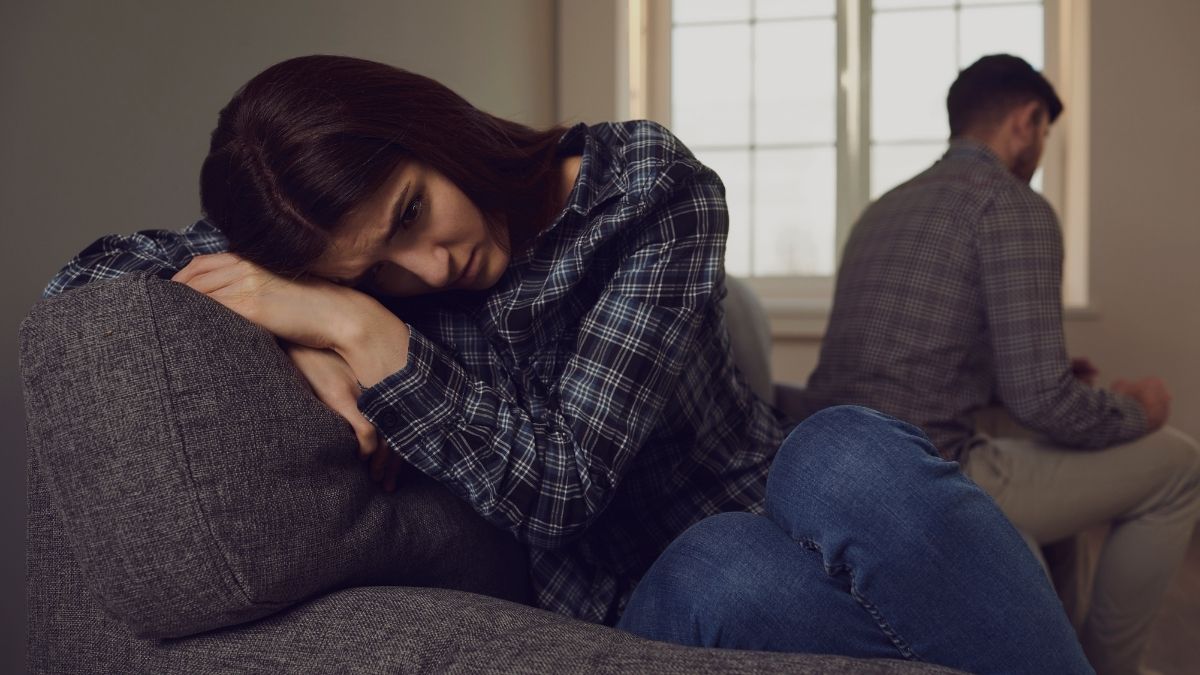Postnuptial Depression: What Every Husband Should Know
I got married in October 2014 and arrived in Dubai for my honeymoon for a month. I went back to Karachi right after to wrap up my life and resign from my job to go back and start afresh in Dubai. It took around 4 to 5 months to do this. What I didn’t realize, though, was that life had insane surprises in store for me. Needless to say, I wasn’t really equipped at that time with the tools to deal with those.
In South Asian culture and society, every girl is automatically assumed to eventually get married and simply ‘adjust’ in her husband’s house. But the truth is so different. So different that it creates an existential crisis within us, which is definitely not for the light-hearted because it leaves you grasping at straws without a will to survive. And that’s putting it lightly. Most newly married women are left to figure out their own journeys when mothers or any other role models could have really helped.
The point in this story is: I had always lived a sheltered life. We always lived with our mom. Never had household responsibilities as such except filling bottles to put in the fridge. Never stayed home because we were always studying since we were 3 years old or working since we graduated at 22. I do realize that I was privileged but that doesn’t affect the point I’m trying to make here and I’ll explain later as I go on.
So when I got married and moved to Dubai, which is so close to Karachi and where so many of my family members live, I did not expect myself to change.
But I had changed. I changed from being a confident, vocal, activist of a person who could even be obnoxious at times to someone who couldn’t decide what to wear. Or even if I ended up deciding, buttoning up a shirt was a task and I would get tired in the process. I suddenly didn’t see the point in anything.
Without realizing or giving much thought to it, my life had changed drastically. I wasn’t working or studying, or going out of my house on a daily basis. I didn’t know what to do with my time at home. I didn’t have anyone telling me to get dressed, we have a dinner to go to, or to tell me to get dressed because it’s a happy day and we have a milaad (religious social gathering) to go to. I didn’t know what to do alone at home. I would just count the hours for my husband to come back from work. How much could one cook? Or clean? Or eat? And there was a repeat times infinity on this; life became a loop that I really didn’t care for.
I was crying day and night. In my prayers and outside of them. My husband kept thinking he did something wrong and that I wasn’t happy in this marriage. He kept sending me back to Karachi. I knew who I was back at home.
Even this was problematic to society who couldn’t understand why I kept coming back home, while I couldn’t understand how could they not? How do you just move in one go from your home of 26 years and not look back at things from time to time?
The Realization That It Could Be Postnuptial Depression
After spending more than a year like this, I came upon some articles which introduced me to postnuptial depression. Most of those were written for western society but I feel it is imperative that this concept is understood within the south Asian communities where marriages are considered the ultimate goal of a successful life.
Postnuptial depression, as the name suggests, is depression that sets in after marriage. Just like clinical depression or even postpartum depression, not everyone will have it but most women I spoke to immediately caught on to what I was saying, were familiar with it and confirmed having been through it. There aren’t many stats around this depression but the 100s of people I spoke to or who shared their thoughts with me mentioned they went through this for around 3 months after marriage. I went through it for around 18 months. For those who have gone through depression, each second is a year, these 18 months were really far too long and that was the reason why I decided that I wanted to spread awareness about how it can affect marriages and especially women.
Signs of Falling into Postnuptial Depression
- Identity crisis or personality crisis
- Loss of purpose in life
- Changing habits and behavior, likes and dislikes
- Foggy thoughts
- Not enjoying the things you used to
Things That Help You Fall Out of The Trap of Postnuptial Depression
- Try to plan the after marriage/honeymoon days as diligently as the wedding festivities
- Keep channels back home open like daily video phone calls
- Keep busy, take classes or if you were a working woman, keep a job waiting, or freelance beforehand so that getting back on track is easier
- Keep a spiritual guide mentor close. What helped me was Khalil Jaffer and his lectures (helped me find my purpose), and Dua Neim ul Badal (to help you realize who the Planner or the Swift Change Maker is)
Lastly, ladies: NEVER listen to people telling you the things that you as a new bride/wife must be doing. Any small indication of you are not doing enough will push you over to the dark side. So take things easy, give yourself time to understand this new life and just take things one day at a time. Take ownership of responsibility only when you are ready for it.
And husbands: LISTEN to your wives. The things she is saying, and also the things she is NOT saying. Ask her how she is, and try to accommodate her like she is trying to accommodate you. Be kind and empathetic to each other as you start this new journey.
I wish you all understanding partners and happy depression-free lives. ❤️
- Postnuptial Depression: What Every Husband Should Know - February 13, 2022




This was very interesting to read